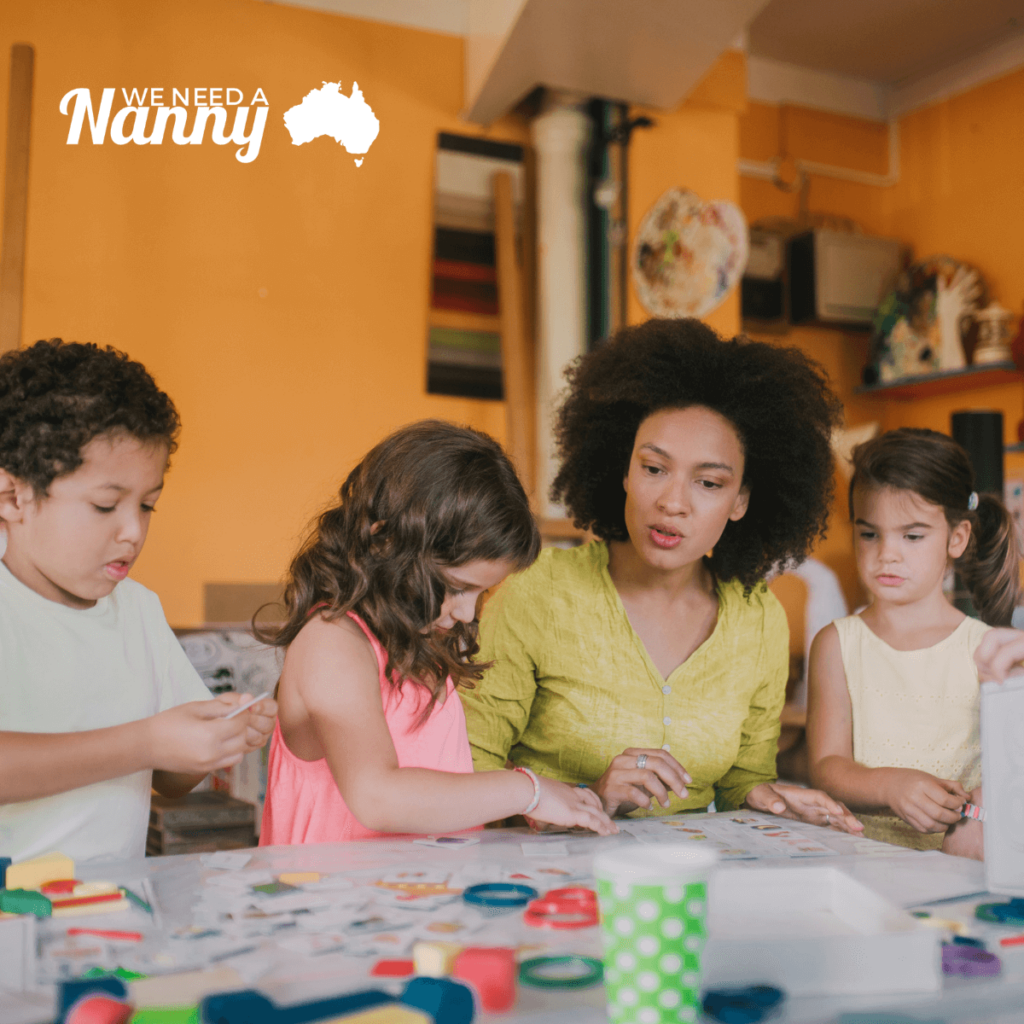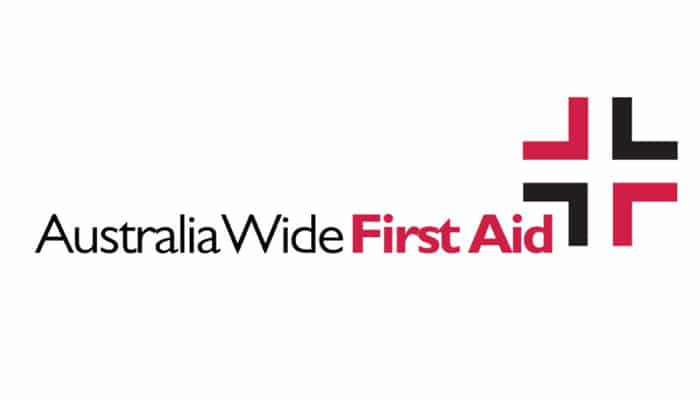Nannies are professionals that usually have some form of qualifications and much experience. There is so much more to gather in the search for how to become a nanny. However, it is vital to understand the exact roles and responsibilities of a nanny, before setting on the journey to become a professional nanny.
Definition of a Nanny
A nanny is a childcare professional who takes care of a family’s child or children. They similarly provide support and assistance for the family. Nannies provide childcare within the family’s home, and they are often either live-in or live-out nannies.
This means that they may reside in the family’s home, or come in for work daily. Nannies are similarly either employed full-time or part-time. Most nannies are qualified in childcare and have extensive experience in the field. Nannying is a professional job with many responsibilities.
Nannies Today
Nannies today play a vital role in society; they provide more personalised care and attention for children to ensure their welfare and development. Nannies often form an integral part of a family, forming strong bonds with the children and parents.
Benefits of Studying a Nanny Qualification
If you are someone interested in becoming a nanny, there are so many wonderful benefits in this position. Nannying is a rewarding and interesting role, but should not be taken lightly.
So here are a few of the many benefits:
It Enhances Your Knowledge and Skills
Having qualifications as a nanny helps to enhance your skills and knowledge in the field. You can provide better high-quality care for the children. Holding a nanny qualification increases your credibility as a nanny and makes you more attractive to potential employers.
With a Nanny qualification, you have access to some of the top nanny jobs and positions and the potential for career growth. A nanny job is a professional field that requires skills and experience like any other job. By studying a nanny qualification, you are investing in professional development and paving your way towards a successful career as a child caregiver.
Many Opportunities
There are hundreds of families seeking a qualified nanny daily. The wide range of families seeking nannies increases your likelihood of finding the perfect, suitable family to join.
You Can Significantly Contribute to Others
Nannies have such a huge and positive impact on their families and their children. They develop close bonds with both the parents and the children over their years of employment. As a nanny, you are actively involved in the mental, emotional, and physical development of the children that you are caring for. Similarly, you provide valuable support and assistance to the whole family.
Nannying is Very Interesting
There is never a dull moment in the life of a nanny. Nannies’ duties revolve mostly around the children and their needs. It is a nanny’s responsibility to keep children happy, healthy, safe, and well cared for. Every family is different and comes with different challenges.
Nannies’ days are filled with interesting and engaging tasks:
- You get to safeguard and care for one or more children.
- There is the daily preparation and cooking of meals and snacks for children.
- You enhance their educational experience by helping with homework and school tasks.
- You can have fun playing with children and engaging in sports, outdoor, and indoor activities.
- Similarly, you can enjoy your creativity by engaging children in arts and crafts.
- You are a problem solver and guide to these children in their daily lives.
- It is your job to manage daily routines such as meal times, school, and nap times.
- Nannies also get to drive children to and from school and other activities on occasion.
- Often nannies help in the house doing light household chores. These may include children’s laundry, dishes and tidying up.
However, before entering a contract with a family, be sure to stipulate all the tasks that you are comfortable performing.
You get to work with Wonderful Families
If you land a stable job with a good family, you can build a good relationship with them. It is almost as if they become your family. Many families treat nannies as a part of their family. They become reliant on the valuable services their nanny has to offer. You could easily find a position with a family that lasts for years. In turn, this allows you to enjoy watching how the children develop and flourish under your care.
Be your own boss
Because you are a professional caregiver, you could easily decide which families you would like to work with. Even though being a nanny means that you must be adaptable with the families you work for, you are still able to pursue opportunities and seek conditions that will work best for you.
Flexibility
Nannies enjoy flexibility when it comes to their work hours. In some cases, you may be needed to work extra hours or after hours. However, this needs to be discussed with the nanny by the employer. With more flexibility in your work hours, you are also able to pursue other interests or even career options.
Joining Trips
Nannies are often asked to accompany the family on trips. These could include weekends away, vacations, or even just day trips. Though you are still there to perform a role and care for their children, these trips can be fun and a chance for you to get out and experience new things and places.
Understanding Nanny Duties
First, before considering nannying as a position, you must understand that nannies must have a love and understanding for children. Nannying requires much patience as well as a natural enjoyment for working with children.
As an aspiring nanny, you must have a clear understanding of all your responsibilities and duties.
These responsibilities and duties can include but are not limited to:
- Providing a safe, clean and nurturing environment for the children.
- Daily planning and implementing age-appropriate learning activities, as well as educational games for the children.
- Helping children with homework, schoolwork and other assignments.
- Preparing healthy and nutritious meals, as well as snacks for the children daily. This also means that you need to take into consideration any allergies or food preferences that the children may have.
- You will need to maintain a clean and organised environment for the children to live in, as well as in their play areas.
- Often it may be required to do some light housework, such as tidying up after the children, doing their dishes and doing some laundry.
- You may also be responsible to administer medication and follow specific care instructions where required.
- You may often be required to drive children to and from school, as well as to other activities.
- In some cases, you will also need to join children in certain extracurricular activities, or even on play dates.
- It is expected of you to communicate effectively with the parents regarding their children’s development and progress, as well as concerns that you may have about the children.
These are just some of the basic responsibilities of a nanny taking care of children. To fulfil these responsibilities to the best of your abilities is essential for your success with a career in nannying.
With regards to what type of learning services you’ll be providing and the ages of the children, some of these responsibilities may differ, or there may be additional responsibilities.
What Parents Expect of a Nanny
Working for a wonderful family and helping to raise their beautiful children means that they will have expectations of you. Most families will form an amazing relationship with their nannies, especially if the nanny is the right fit for the family and vice versa.
So here are a few basic characteristics that most families look for in an amazing nanny:
Trust
Most families that are interviewing nannies will place trust at the top of their list for a great nanny. Trust usually comes with much honesty and respect. Being honest and trustworthy is one of the main characteristics that needs to develop naturally between you, the children, and the parents. Parents need a nanny that they can trust and rely on with their most precious possessions.
Respect
It is vital for the nanny to respect the children and the parents. Nannies are expected to respect the parents’ boundaries, their privacy and their values and morals. It is important for nannies to adhere to all the rules and regulations within the home of the family.
Similarly, a nanny must respect the belongings of the family and take care of it as if it were their own. They are also required to speak and conduct themselves in a respectful method towards the parents and the children. It is vital for nannies to respect the privacy of the family in their home.
A few examples of being respectful and trustworthy include:
- Always ensure that you communicate clearly and meet what is expected of you.
- Do not let other people or your friends into the home of the family, unless you have permission from the family beforehand.
- Always own up to your mistakes. Nobody’s perfect. So, admitting when you did something wrong helps you to foster trust with the family.
- Do not speak to your friends or other individuals about private matters that happen within the family.
- Always first ask the parents what they must do when their child is misbehaving. Disciplinary styles vary within families, so it is important that you know what the families consider to be appropriate disciplinary measures.
Love and Kindness
Above all, every family wants a nanny who truly cares for their children as much as they do. So, by being attentive and caring towards the child, you can grow your bond with the entire family. Always show enthusiasm for their child’s development and teach them some new things. Encourage them to have fun and to laugh and always make sure that they are happy and safe.
Flexibility
If you can be more flexible with your time, it will be much valued by the family. Often the families may expect a little flexibility from you, especially if you provide live-in care. Also, be mindful when times are stressful for the family and help them out where you can.
Try to make things as easy as possible for the family, especially after work. You can do this by asking what you can do for them before you leave. You might also offer to look after their children on a weekend or for some overtime.
Parents will cherish having some alone time as well. You may also notice at times that parents need some space. So, a kind gesture would be to take the children for an outing during this time. When you show that you are willing to go the extra mile, parents will see that you are adaptable and that you truly care for the family.
However, still remember that you are entitled to payment for overtime. So, if you are working longer hours than agreed on the contract, be sure to let the parents know. After all, you are entitled to receive fair remuneration.
Communicate with the Parents
Parents love to hear what their kids are up to all day. Keep in mind that the parents cannot be with their children throughout the day, and it makes them feel more connected if you communicate with them about their children.
Always provide frequent updates on what is happening with the children, regardless of how small it may be. The parents love this. You can even, if permitted, take some pictures of the children throughout the day, and send them to the parents.
Also ask the parents what they’d like to know about their children, and then provide feedback on how the children have behaved throughout the day.
Parents also love to know about the development of their children and even the adventures that their children have had throughout the day. Thus, always make sure to keep the parents updated.
Become Part of the Family
All in all, parents just want the best for their children. An open, caring and sharing nanny who is trustworthy can become an important part of the family. You will see, you will soon find that you are bonding with the children and parents of their children.
Parents simply want the best for their children. Be open, caring, sharing and trustworthy, and before you know it, you will become an important part of the family.
Recommended Skills for a Nanny
There are a few practical skills that can help a nanny perform their role much more effectively.
Some of these skills are:
- Patience.
- Good communication skills.
- Good organisation skills.
- Creativity.
- First aid skills.
- Good problem-solving skills.
- Skills in cooking nutritious meals.
- Regular household duty skills.
- A driver’s licence and good driving skills.
How to Become a Nanny
Now that we’ve gone through everything that there is to know about being a nanny, their duties, their roles, and the advantages of being a nanny, how do you become a nanny?
There are some legal requirements for working as a nanny, and you must ensure that you are fully compliant with the law and have the relevant certifications before you can start caring for children.
It is always your responsibility to ensure that you have the relevant checks and documentation in place between you and your prospective family. The family must verify these checks before you care for their children. It would be advisable to seek advice from legal professionals to ensure that you are fully compliant before becoming a nanny.
To learn more about what is required before working with children, you can look at the Australian Nanny Association for a more detailed overview.
With that said, let’s dive into everything you will need to become a nanny:
Working with Children Check (WWCC)
Extremely important is the Working with Children Check (WWCC) or the Blue Card. Any nanny agency and any potential family will require a Working With Children Check that is done by a legal professional. The Working With Children Check is a legal requirement for any person involved in caring for children.
You must have a valid check that is applied before you start working with children. While you can still apply for a nanny job before you have done that check, parents must request that you do the check before you start caring for their children. The checks are administered by each state and territory, and each of them has different processes that you must be aware of.
National Police Check
Most parents will require you to do a National Police Check. These checks are quite easy to do and can be completed online a few days before taking your position as a child carer. You will receive a national police certificate which is a document that lists your disclosable court outcomes or pending charges.
Keep in mind that a full national police certificate or check can only be done with your permission, and they are only valid at the time of the application.
Visas
A Visa is only necessary if you are visiting from overseas. Therefore, they are mostly needed by Au Pairs. You must ensure that you have a valid visa that allows you to work as a nanny. The platform VEVO (Visa Entitlement Verification Online) allows you to easily verify your Visa conditions online.
Driver’s Licence
While it is not a requirement to have a driver’s licence as a nanny, it is viewed favourably by parents if you can drive. In some cases, parents may require you to drive children to and from school or other activities. Parents may also value the fact that you have your own car and transport especially if you are not a live-in nanny.
Insurance
It can be beneficial, especially if you are working as a contractor to cover yourself for any accidents, with suitable insurance. Usually, when you are hired by a family as an employee, they should have workers’ compensation insurance for you. Make sure to confirm with the parents about arrangements and responsibilities before entering into any agreements.
Qualifications Needed to Become a Nanny
Though not set in stone, there are still a few qualifications that improve your resume and professional stature as a nanny. Most parents, if not all, will require that you have First Aid certificate qualification and CPR training before employing you as a nanny.
Though if you are looking into more comprehensive training programs it will help to enhance your skills and qualifications. Most nannies invest in a basic Childcare and Development qualification. Though there are additional certifications that you can pursue, such as:
- Specialised training programs focusing on specific areas of childcare. For example, special needs care or even early childcare education.
- Professional development workshops and conferences help you train and stay updated with the latest childcare practices. Similarly, of course it helps you to gain insights from other industry experts.
When you invest in professional development as a nanny, you provide the highest quality of care for your family. Similarly, you will stay competitive in the field of child care.
On that note, let’s look a bit further into Education and Training for nannies:
Education and Training for Nannies
When entering this field, you can enhance your training with qualifications and certificates such as early childhood Training, Childcare, or a National Certificate in Children’s services. Similarly, qualifications such as a diploma in Children’s services, or even a Bachelor of Education are beneficial and will set you apart from the rest.
The ACECQA (Australian Children’s Education and Care Quality Authority), is an independent national authority that assists governments to administer a National Quality framework for children’s education and care.
As you will notice in your journey to becoming a nanny a national certificate III in Children’s Services is usually favourable to have:
CHC30121 Certificate III in Early Childhood Education and Care
TAFE is one of the best institutions for obtaining a CHC30121 Certificate III in Early Childhood Education and Care. This qualification will greatly benefit your career as a nanny, and improve your chances of landing a position. It provides you with all the necessary knowledge and practical skills for working with children in their various early childhood education settings and stages.
The course mainly covered topics such as child development, health, and safety for children, as well as teaching how to support children’s learning and development. It also contains some practical training to help you gain insights into hands-on experience when caring for children.
Having this certificate will enhance your professional credibility and demonstrate how committed you are to providing quality care for the children of your family. Other than the CHC30121 Certificate III in Early Childhood Education and Care, there is also further education and training to help you excel as a nanny.
As we have mentioned, you can enrol in courses and workshops that focus on different topics. These topics can include child psychology, behavioural management, as well as age-appropriate activities for children.
By continually learning, it shows that you are staying up to date with the latest childcare practices, tools and techniques. This enables you to provide the best possible care and support for the family and the children under your supervision
First Aid Training for Nannies
Essentially, most families will require some form of first aid and CPR training. It is usually a requirement for approved childcare providers as well as family daycare services to ensure each educator and assistant has current and approved training:
- First Aid Certification.
- Current anaphylaxis management training.
- Emergency asthma training.
- CPR Training.
This training is not only recommended for nannies but also for the parents themselves.
We Need A Nanny has partnered with Australia Wide First Aid Institution for training in the various fields of child safety and health.
This might seem quite extensive, but there are some good reasons why emergency training is crucial for all nannies.
Why is Emergency Training Crucial for Nannies
First aid courses and emergency training are essential for nannies to always ensure a child’s safety and here is why:
- Nannies need to be confident, competent and prepared to handle all medical emergencies. Basic first aid knowledge can help you to save a life even when accidents happen.
- Children have many accidents, which cause injuries. A nanny must know how to assess the risks and provide a safe environment for children. They must also be able to respond appropriately and quickly in case of an emergency.
- You may be required to care for children with ongoing health conditions. These could include epilepsy, asthma, diabetes, or even severe allergies. In this case, first aid training becomes even more vital.
- When you have to obtain a valid first aid certificate, it will better your chances of gaining employment.
It is not just enough for a parent to be skilled in first aid. It is also important for nannies to receive first aid training to ensure the child’s safety.
Childcare Experience
As a nanny, there is always something more to be learned about child care. Most families require that their nannies have some form of childcare experience, and usually references. Unfortunately, when starting as a nanny, you may not have the required experience.
However, there is a quick and simple way to start learning new skills, required as a career nanny. One of the best ways to acquire experience is by starting, performing, babysitting duties. After you’ve done a few babysitter jobs successfully, you can start your career as a professional nanny.
You can ask these parents for recommendations to provide you with a reference list that you can use for nannying. When stepping away from babysitting to a child carer, you can always ask families to give you their feedback, which is a helpful learning method.
Gaining more practical experience in child care can be invaluable when you are an aspiring career nanny.
Additionally, you can offer your services as a nanny assistant to help you build a solid foundation in child care experience and get the necessary references. All this experience will enhance your skills and demonstrate your commitment and passion for working with children.
A good tip before you start applying and looking for a position as a nanny is to stand back and define the qualities of a caregiver that you think will suit your own family. You will find that one of these qualities is experience. However, how do you know how much experience is enough for you to become a nanny?
General Experience and Specific Experience
Generally, when it comes to experience, the more years a nanny has been caring for children, the greater their experience is. However the question is not merely how many years you’ve been working, but also what kind of experience you have.
Keep in mind every family is different and has unique needs. Therefore, the key is to consider all the finer details when it comes to your past engagements in caring for children.
Therefore, the key to considering all the finer details of a caregiver’s job, in essence, the capacity of the care you provide for a family is just as important as the amount of years of experience that you have.
Babysitting children occasionally is very different to nannying. Nannying is a long-term responsibility, caring for children and also providing care and support to families. While it is helpful, the most important element is how much you can connect with the children you are caring for.
Areas that Nannies Need Experience In
To prepare you for an interview with a potential family that you may be nannying for, it is important to know what questions they might ask you. So here is an outline of some of the basic questions that most families will ask you in terms of your experience:
- How many children have you cared for?
- How many years of experience do you have in caring for children?
- What are the different kinds of situations that you have worked in?
- Have you worked with other children that are similar in age?
- Do you have experience with special needs children or children with medical needs?
- Do you have experience working with infants, toddlers or babies?
- Do you have experience working with older children or teenagers?
- Can you follow dietary restrictions and avoid food allergies in children?
- Do you have experience navigating unusual or difficult family dynamics?
- Do you have any special qualifications? Do you have First Aid training or CPR training?
- Do you have experience in handling emergencies during the care of a child? And what did you do in these emergency situations?
From all these questions, you should have a much clearer idea of the experience required by most families when it comes to their nannies.
So, by now you’ve attained all the necessary skills, qualifications and experience required to be a nanny. Let’s move on to setting up and completing a resume for you.
How to Set Up a Resume
Before we get into setting up the perfect resume for your nanny position, let’s look at the reasons why you need a resume.
Why Do I Need a Resume?
A well-structured and informative resume is essential when you are applying for any nanny position. Your resume will tell potential parents exactly who you are and what you bring to the table. It is the first impression that you make when you are applying for a nanny position.
The resume tells the potential family all that they need to know about you as a person and nanny. It includes all your qualifications, your experience and anything else that the parents need to know. It also gives them a clear indication of the type of position that you are looking for and of the duties and responsibilities that you can perform
Do I Need a Cover Letter?
A cover letter is not generally required unless it is specified by the job ad. However, it does help to give a short introduction about yourself and explain why you are interested in the specific position.
It gives a quick overview of your relevant experience and qualifications, as well as more insight into your philosophies about child care and your training background. Your resume can then easily back that up with further details.
Keep in mind that employers often receive multiple applications and may not have time to look at your CV. Thus, a cover letter is a quick highlight and summary of your CV that they can look through.
By looking at a sample resume, you can easily get an idea of what your resume should look like.
Profile photo
It is important to add a simple and professional portrait photo of yourself. The profile photo will showcase your personality and give the family an idea of the person that they are hiring.
Hourly Rate
Although it will be discussed in your first interview, it is a good idea to give an indication of the rates of pay that you are willing to work for. Nannies in Australia typically get paid between $25 and $45 an hour. The rate of pay is affected by your position, whether part-time or full-time, as well as other factors.
Factors such as the geographical region, your skills, and qualifications generally affect the amount that you can expect to get paid
Checks & Qualifications
It is also important to indicate whether you have done the legal checks such as police clearance and the Working with Children Check. You should also add all relevant qualifications and First Aid training. Parents like to know that you are a professional and that you are skilled in the field of child care.
About Me
In the About Me section, you are free to describe yourself, and your personality and state why you feel you are a good fit for the position. The about me section tells parents a bit more about you, your hobbies, interests, and general personality.
This section also allows you to highlight other skills, such as multitasking, problem-solving, or creative skills.
Experience
It is important to add your experience levels, as well as how many years of experience you have, and in what situations. Try to provide valid references if previous employers can vouch for your credibility.
Listing your previous employment positions and duration of employment is also vital. But it’s recommended to not include personal or sensitive contact information.
Availability
Make sure to reference your availability with a short explanation of the right job description, what you are available for, and when.
Additional information
Additional information about yourself is added in this section. Information such as the languages you speak, and whether you are willing to travel or work overtime.
Create A Video
To make the best first impression a short 1-to-2-minute video always does the trick. However, be mindful of privacy and your settings. Make sure that you are the only one in the video.
A Few Tips
Use your ‘about me” section to let your personality shine. Be professional, authentic, and respectful in the manner that you present yourself. Videos are a powerful and effective way to express your personality to a potential family.
Make sure that you double-check your resume for any grammatical errors or spelling mistakes, many parents do care about spelling and grammar.
When you have created an online profile, check it regularly to see search results.
Applying for a Position
When you use We Need A Nanny to apply for a nanny position, your first contact with the parents will usually be a message to them on the site.
It is important to reference a job description to the specific position that you are applying for. Introduce yourself, and enquire whether the position is still available.
Try to answer their ad by including as many details as possible from the ad.
First Impressions
First impressions last as they say. It is important to make a good first impression when meeting a family for the initial interview.
Here are a few tips to help you make the best first impression:
- Always arrive a few minutes early for your interview.
- Make sure you are dressed neatly, but comfortably.
- Introduce yourself to the children, and make sure that you connect with them.
- Answer all questions honestly and openly.
- Remain respectful and friendly in your conduct.
- Make sure that you have a list of questions to ask the parents.
- Show interest in the children and their needs by compiling some questions on the parent’s parenting styles, and children.
Accepting or Declining the Positions
You may be required to have a second interview. If the parents offer you the position, they will set up a contract agreement. The ball is now in your court, whether you are happy to accept the agreement and position, or respectfully decline. It is advised to accept or decline either in person or in writing.
Building Strong Relationships with Families
Now you need to start to build a strong and reliable relationship with your new family. A positive relationship with the family ensures that both parties are content and that you will have a job in the future.
Follow these steps to improve your relationship with the family:
- Always actively listen to the parents and adhere to their expectations.
- Communicate openly and honestly about any issues you may have.
- Respect the family and their privacy.
- Try to be as flexible and accommodating as possible.
- Always show genuine care and affection towards the family and children.
What is the difference between a nanny and a babysitter?
Nannies generally have more responsibilities and longer work hours than babysitters. Nannies are usually qualified professionals actively involved with the children. Whereas babysitters usually just cater for the safety and basic care needs of children.
Is nannying a skill?
Definitely so. Being a nanny requires much skill and experience, as well as a true love for children. Nannies play a vital role in a child’s life and their development. Therefore they need skills to provide the best care and support for the children and the family.
What is a nanny certificate?
Nannies often apply for training in the fields of childcare, or other courses. This usually certifies them as a professional nanny.










